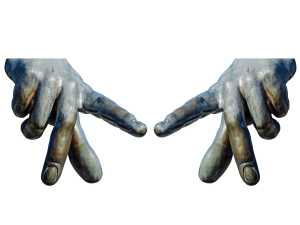Language Direct can provide you the best sign language interpreters.

Technically, sign language is the manner of communicating using body language and manual communication. The earliest use of sign language recorded in history was in 5th century BC. This was recorded in Cratylus by Plato, when Socrates was quoted saying “If we hadn’t a voice or a tongue, and wanted to express things to one another, wouldn’t we try to make signs by moving our hands, head, and the rest of our body, just as dumb people do at present?”
Today, hundreds of sign languages, based on local dialects and cultures, are used throughout the globe.
While sign languages have the same language faculty and properties as oral languages, they generally do not have linguistic relation to the spoken languages of the countries or areas where they come from. This is why there is a great need for sign language interpreters.
The British Sign Language
The British Sign Language (BSL) is the sign language that is being used throughout the United Kingdom. The UK has approximately 125,000 deaf adults and 20,000 deaf children who use BSL. 15,000 residents of England and Wales say that their main language is BSL, according to a 2011 study.
There are also dialects or variations of BSL, just like oral languages do. For example, the BSL used in Scottland have variations from that used in Southern England. There are also specific signs that only exist in certain cities or towns.
Sign Language Interpreters
The Qualifications and Curriculum Authority (QCA) provides accreditation and awards in terms of excellence in communication with deaf people. BSL certification is divided in different levels:
1 – Level I – Elementary
2 – Level II – Intermediate
3 – Level III / NVQ 3 – Advanced
4 – NVQ Level 6 – English Interpreting
The British Sign Language Academy created the official BSL curriculum. They also provide tutor and training. The British Deaf Association established the British Sign Language Academy.
There are a number of British universities that offer Deaf Studies as a course, including sign language interpreting. Completion of courses qualifies the interpreters to register at the National Registers of Communication Professionals with Deaf and Deafblind People (NRCPD). Interpreters may apply for various levels of interpreters after passing assessments and meeting required certification from the QCA.
Interpreters may also join the Association of Sign Language Interpreters, an organization representing professional sign language interpreters in the United Kingdom.
Contact Language Direct for accredited and certified Sign language interpreters today.
Language Direct it’s currently providing services in London | Birmingham| Leeds| Glasgow| Sheffield | Bradford | Edinburgh | Liverpool | Manchester | Bristol | Wakefield | Cardiff | Coventry | Nottingham | Leicester | Sunderland | Belfast | Newcastle upon Tyne | Brighton | Hull | Plymouth| Stoke-on-Trent | Wolverhampton | Derby | Swansea | Southampton | Salford | Aberdeen | Westminster | Portsmouth | York | Peterborough | Dundee | Lancaster | Oxford | Newport | Preston | St Albans | Norwich | Chester | Cambridge | Salisbury | Exeter | Gloucester | Lisburn | Chichester | Winchester | Londonderry | Carlisle | Worcester | Bath | Durham | Lincoln | Hereford | Armagh | Inverness | Stirling | Canterbury | Lichfield | Newry | Ripon | Bangor | Truro | Ely | Wells | St Davids